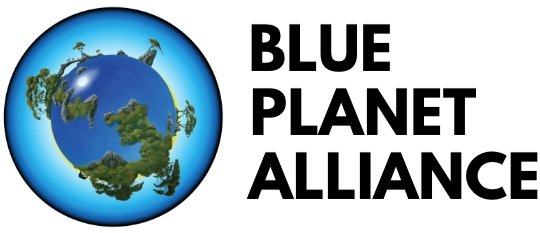
THE BLUE PLANET CLIMATE AGREEMENT:
OUR ROADMAP TO 100% RENEWABLE ENERGY
Our Blue Planet Climate Agreement is the catalyst for global change. Our mission is to facilitate the transition of islands and countries to 100% renewable energy by 2045 through legally binding legislative mandates.
This journey began in Hawaii, where our founder, Henk Rogers, championed a 2015 law requiring the state to be powered by 100% renewable energy by 2045. This landmark achievement proved that setting a firm, unified deadline sparks the innovation and stakeholder alignment necessary to achieve the "impossible."
We have since taken that proven model worldwide, working alongside governments, utilities, civil society, and the private sector to co-create actionable roadmaps toward clean energy. To date, 16 islands have signed the Blue Planet Climate Agreement, publicly committing to their own transitions. Through strategic partnerships and our Fellowship Program, we are empowering these nations to eliminate fossil fuel dependency and secure a sustainable legacy for the entire world.
MILESTONES OF THE MANDATE: CELEBRATING OUR ISLAND PARTNERS
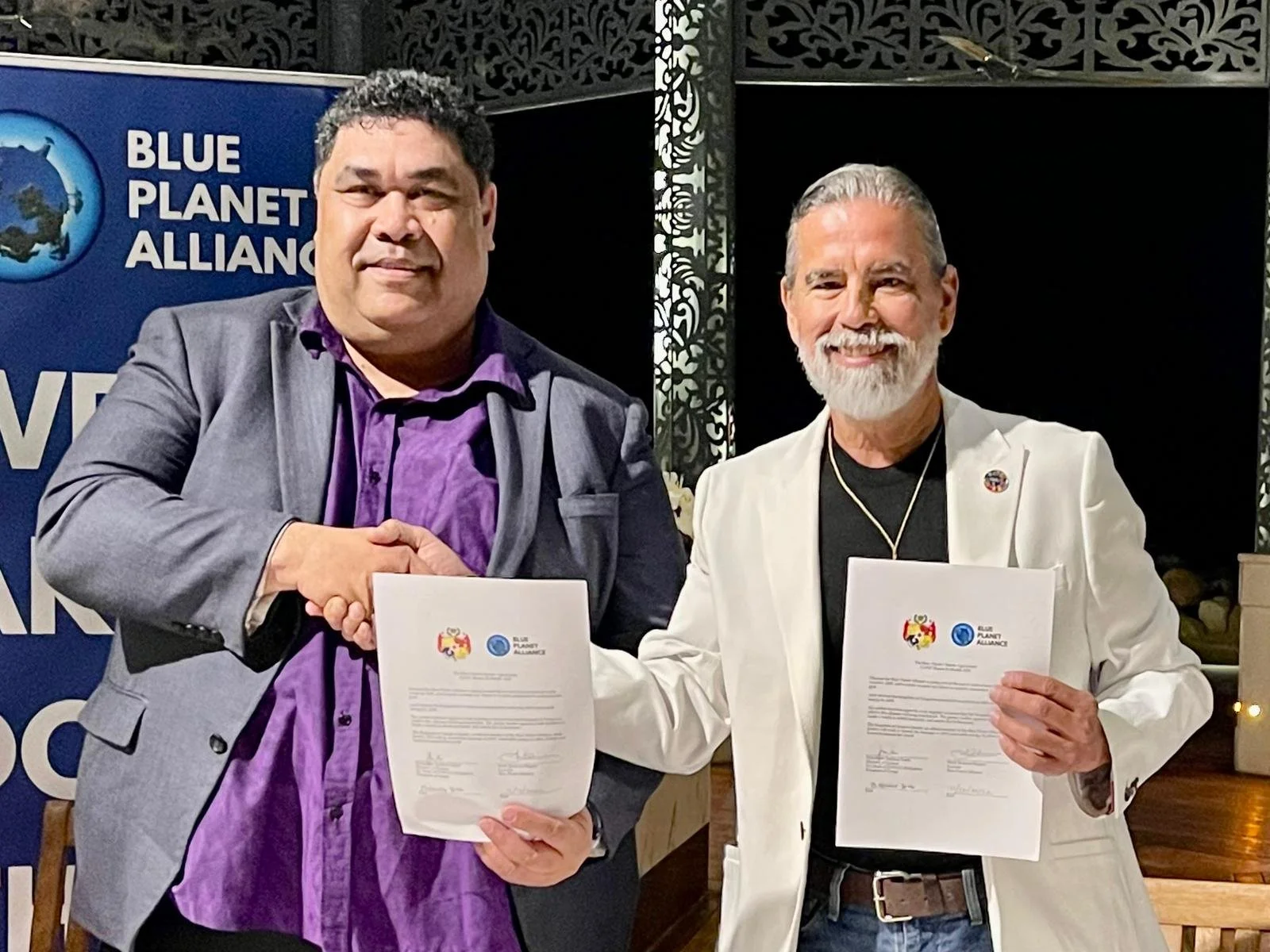
|
KINGDOM OF TONGA November 2022 |

|
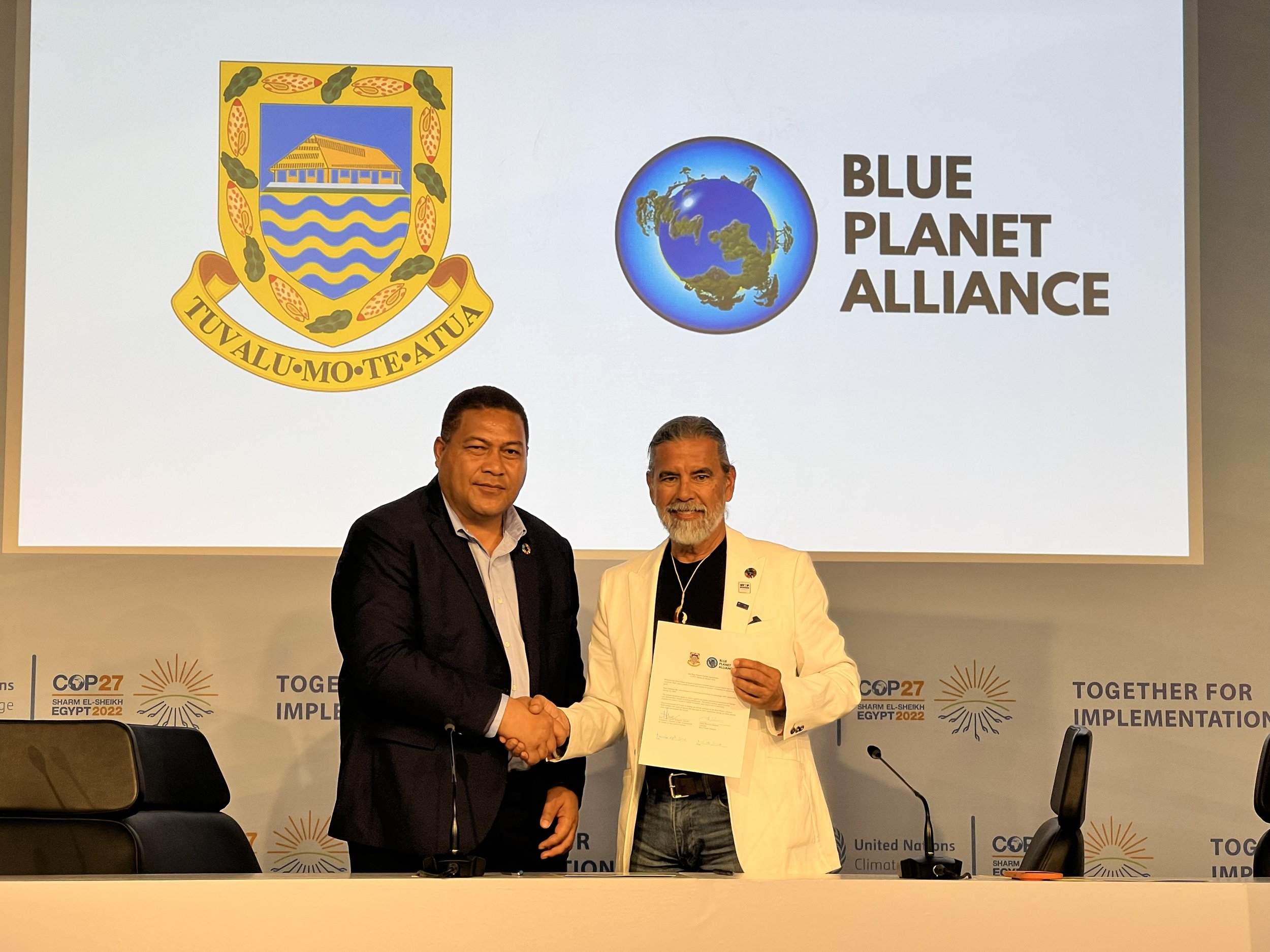
|
TUVALU November 2022 |

|
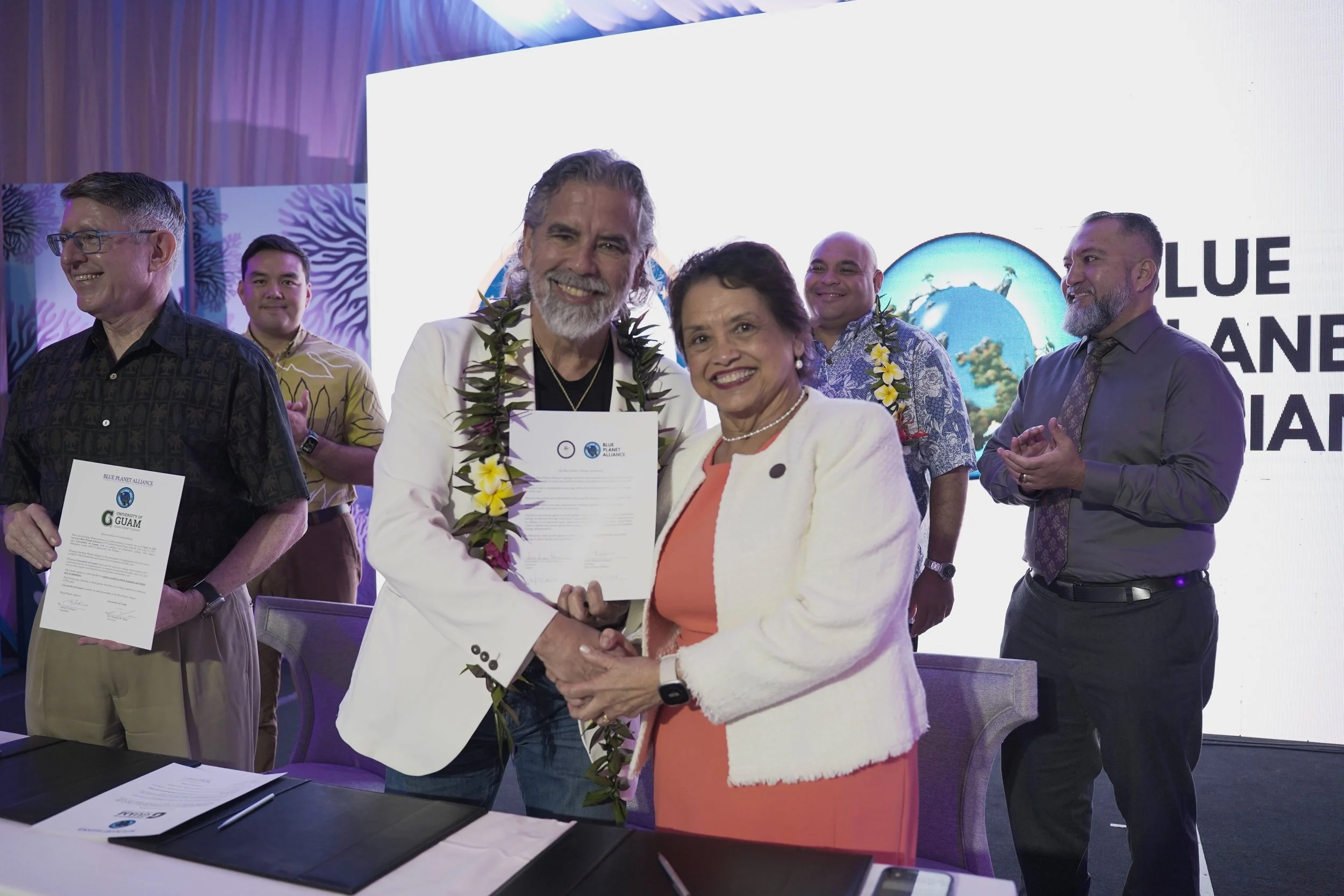
|
GUAM April 2023 |

|
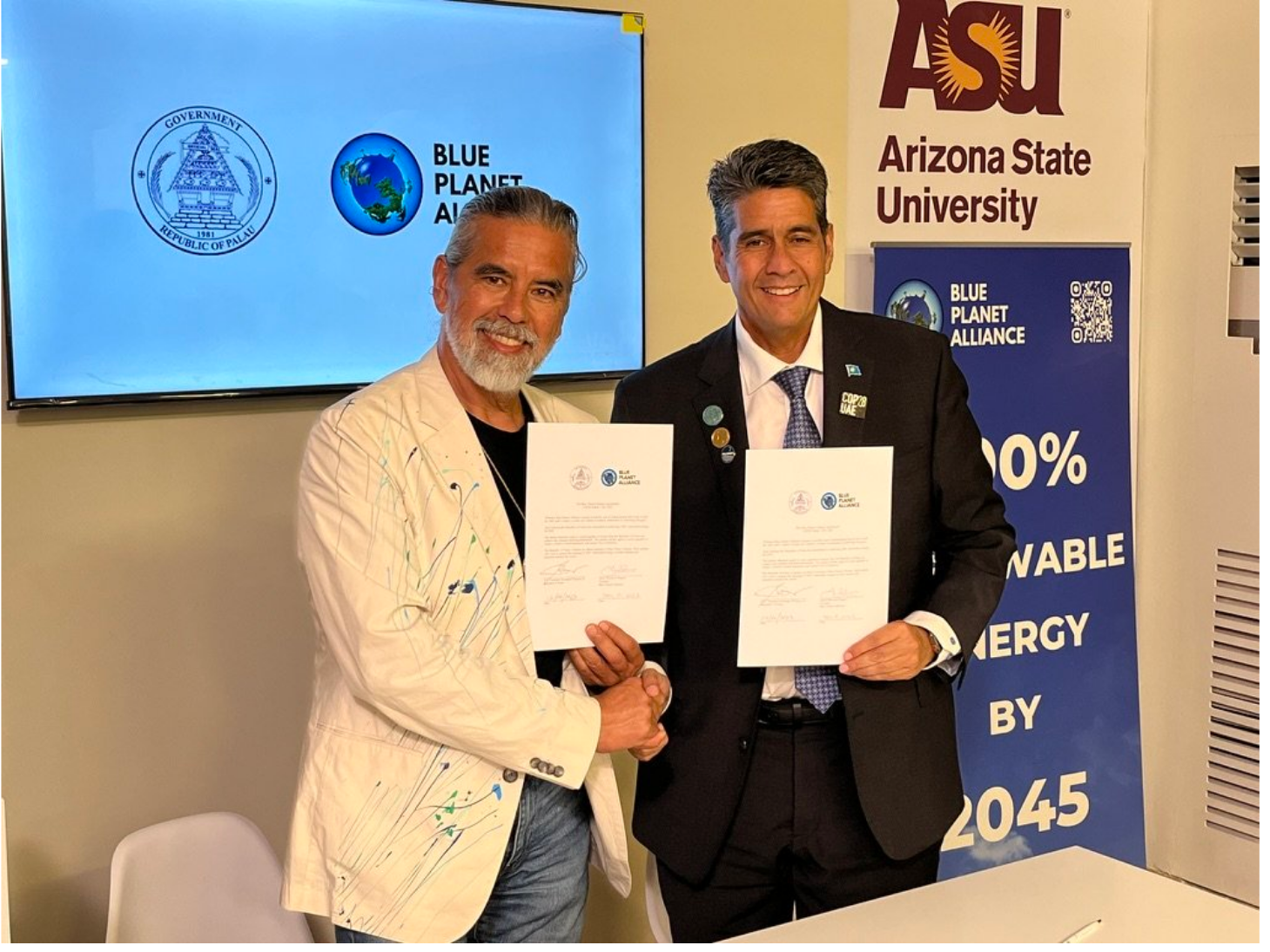
|
REPUBLIC OF PALAU November 2023 |

|
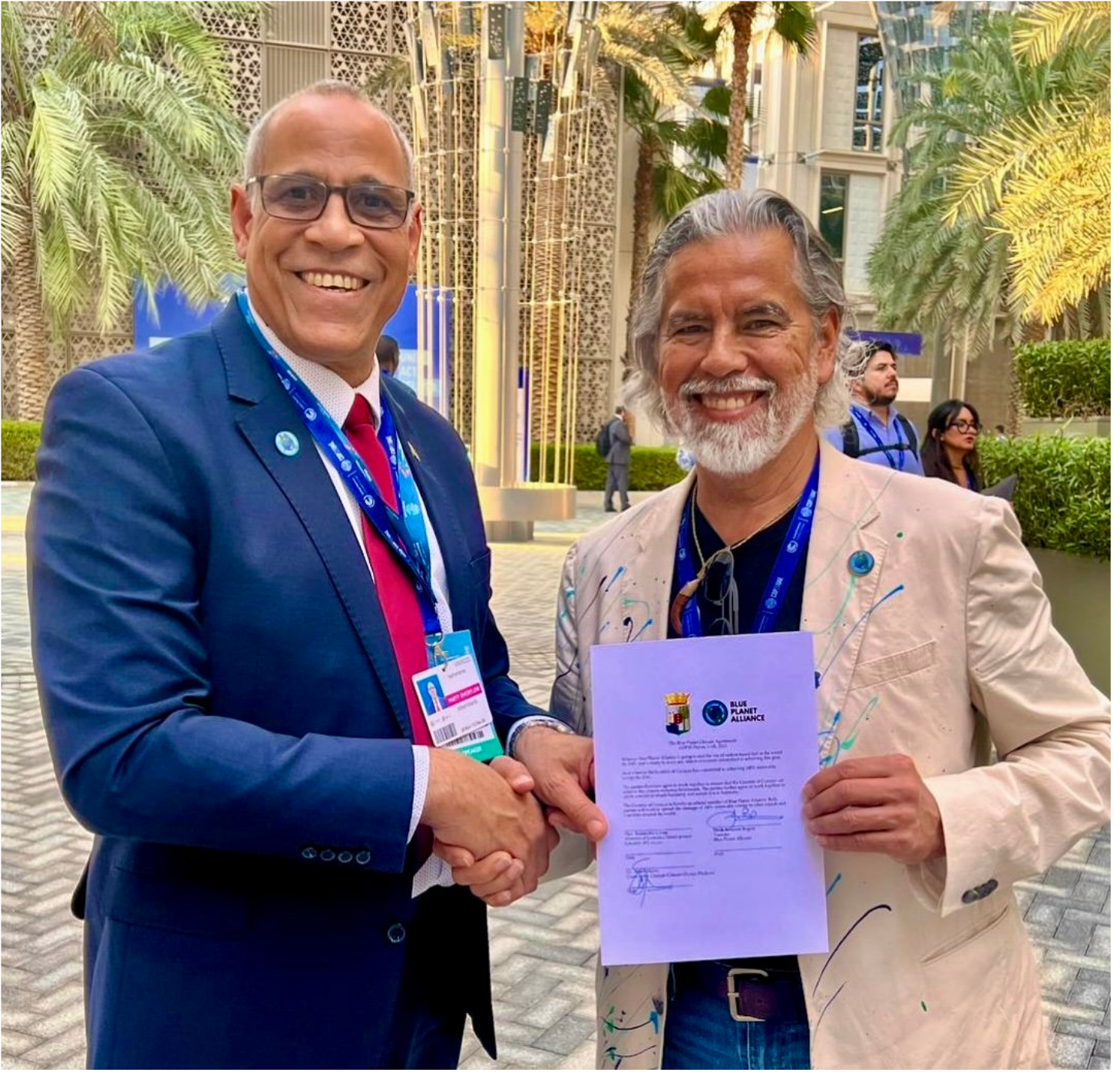
|
CURAÇAO November 2023 |

|
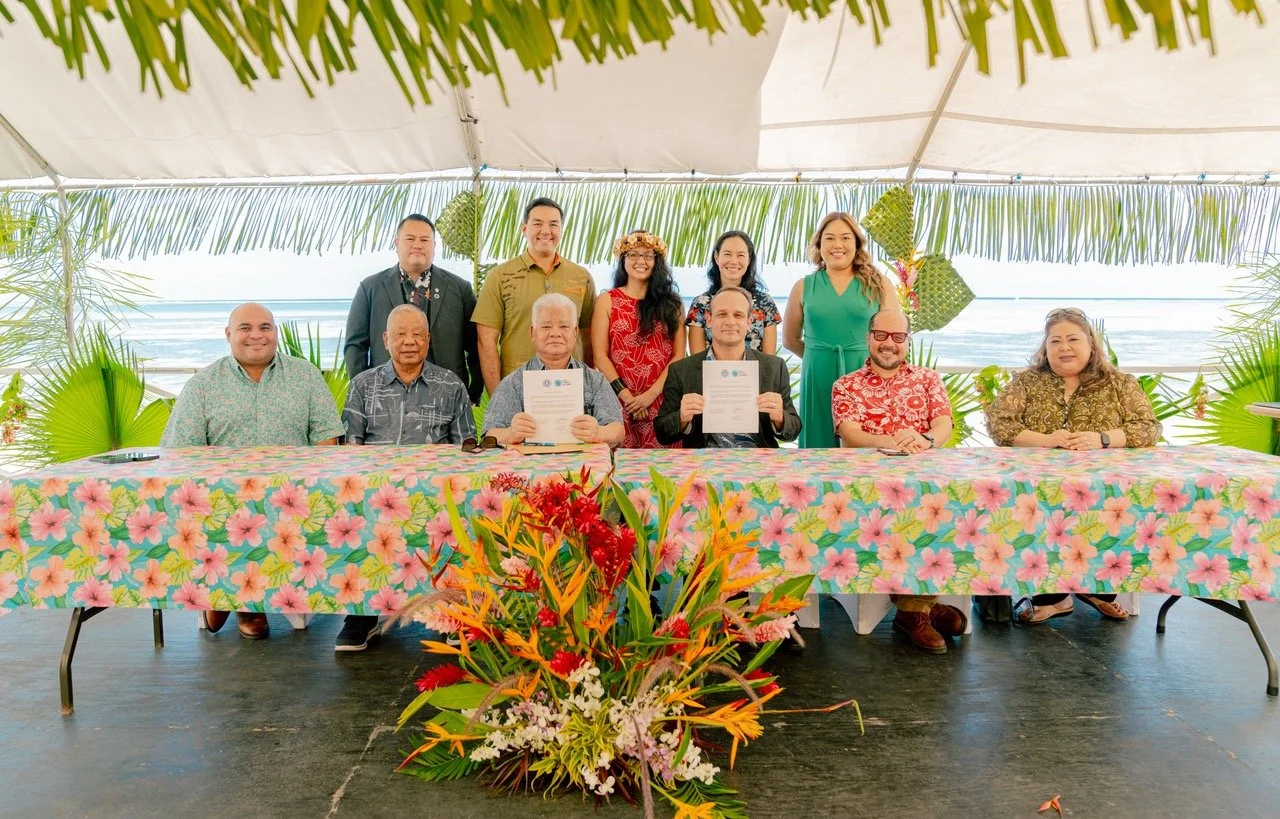
|
COMMONWEALTH OF THE NORTHERN MARIANA ISLANDS April 2024 |

|
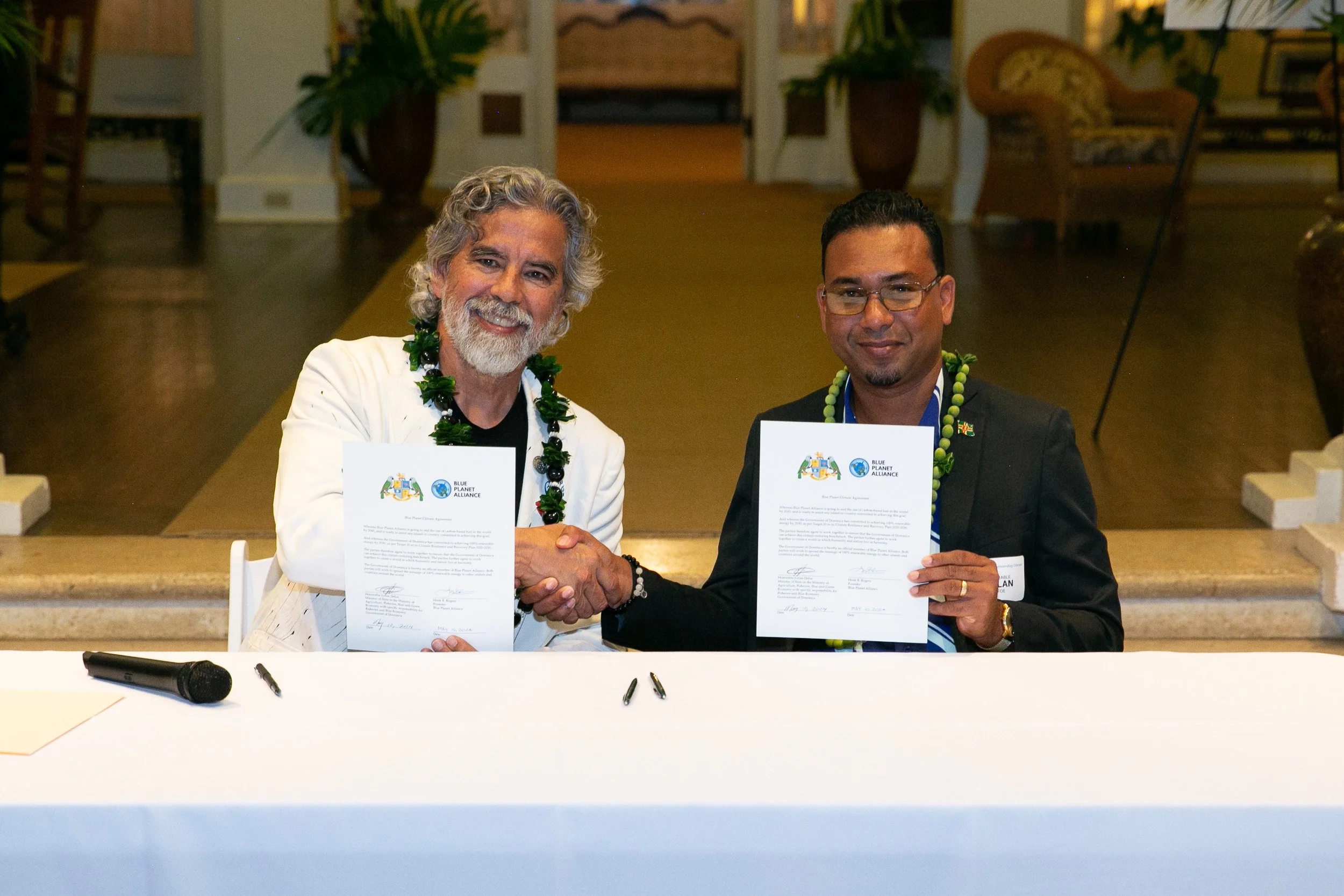
|
COMMONWEALTH OF DOMINICA May 2024 |

|

|
GRENADA May 2024 |

|
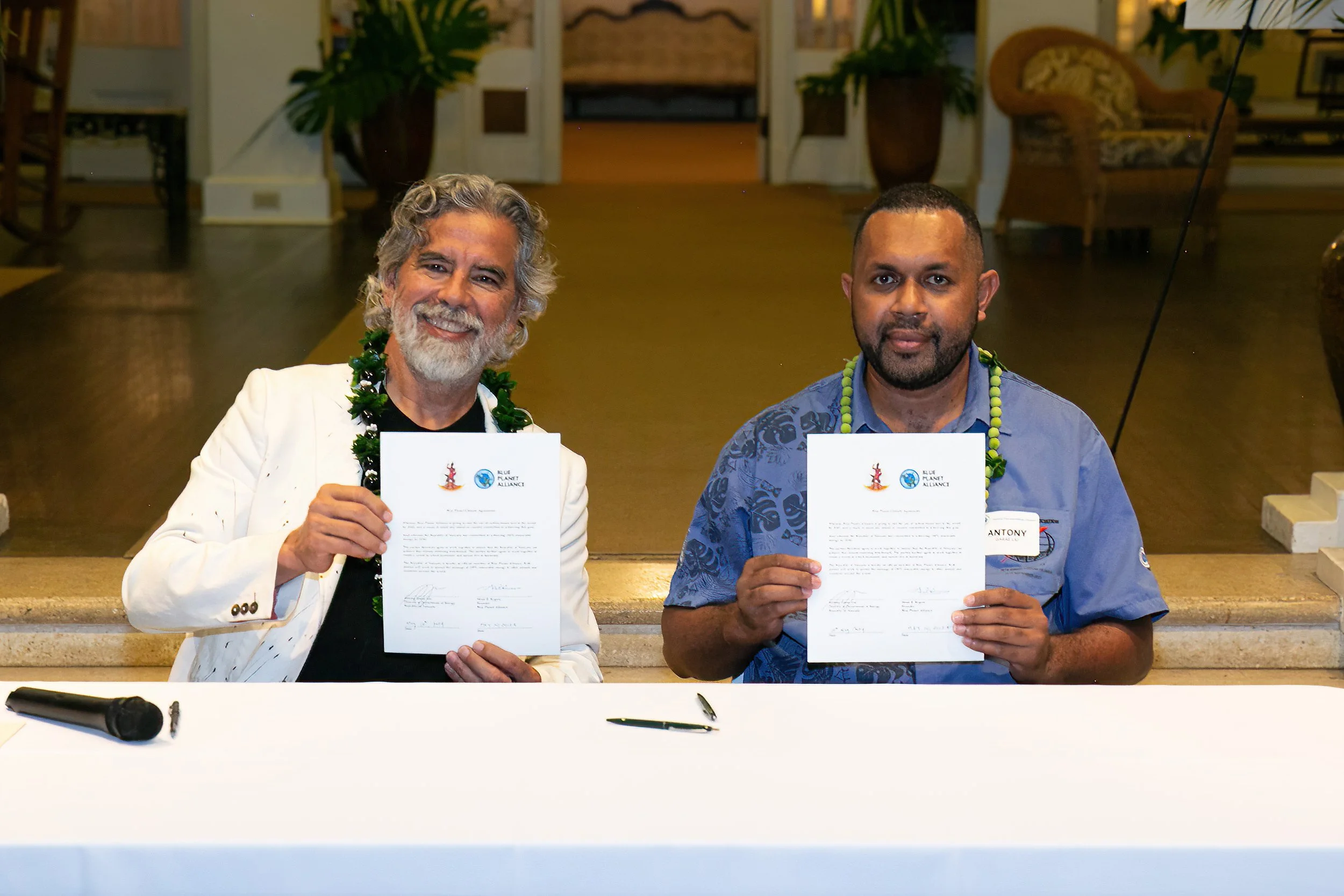
|
VANUATU May 2024 |

|
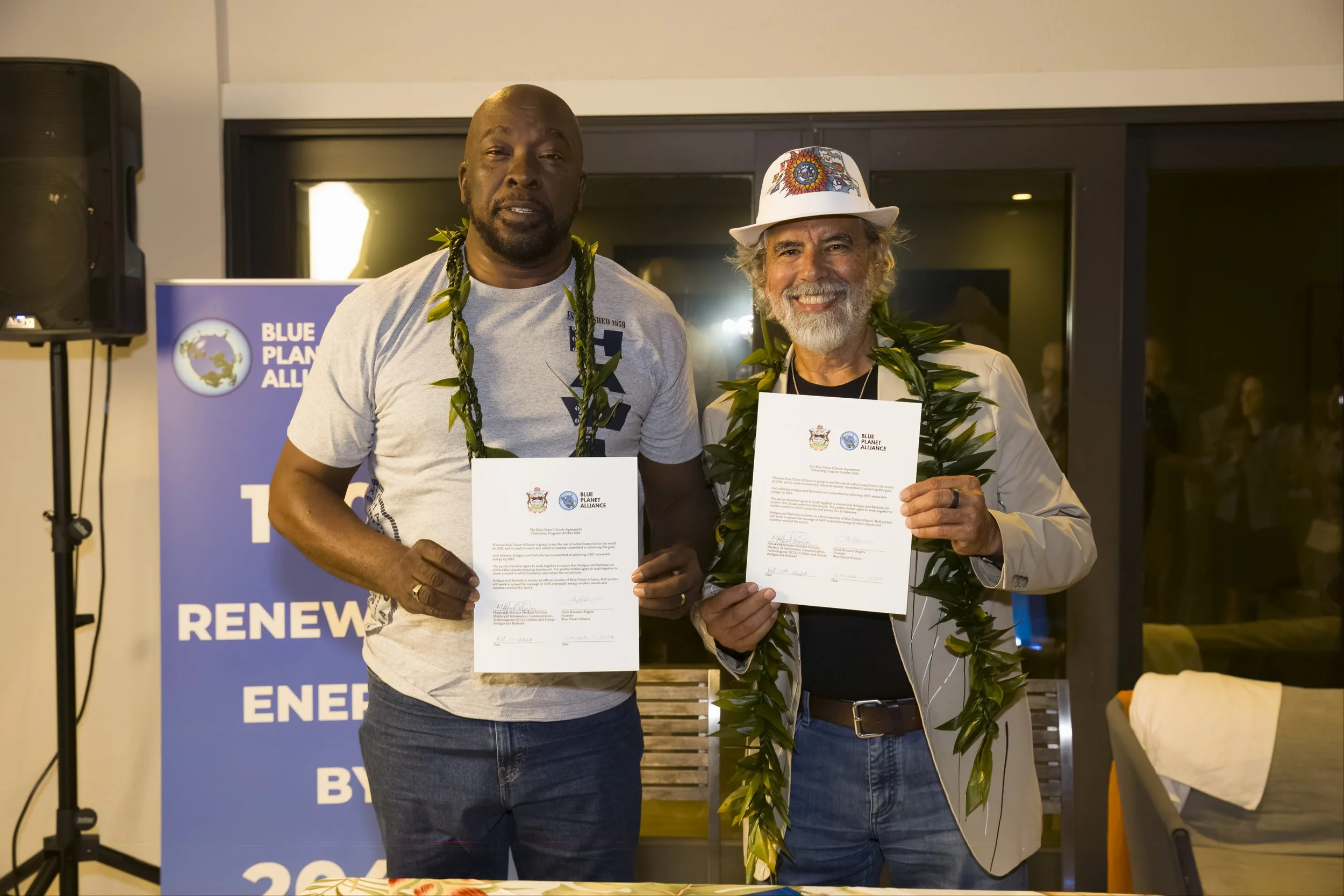
|
ANTIGUA AND BARBUDA October 2024 |

|
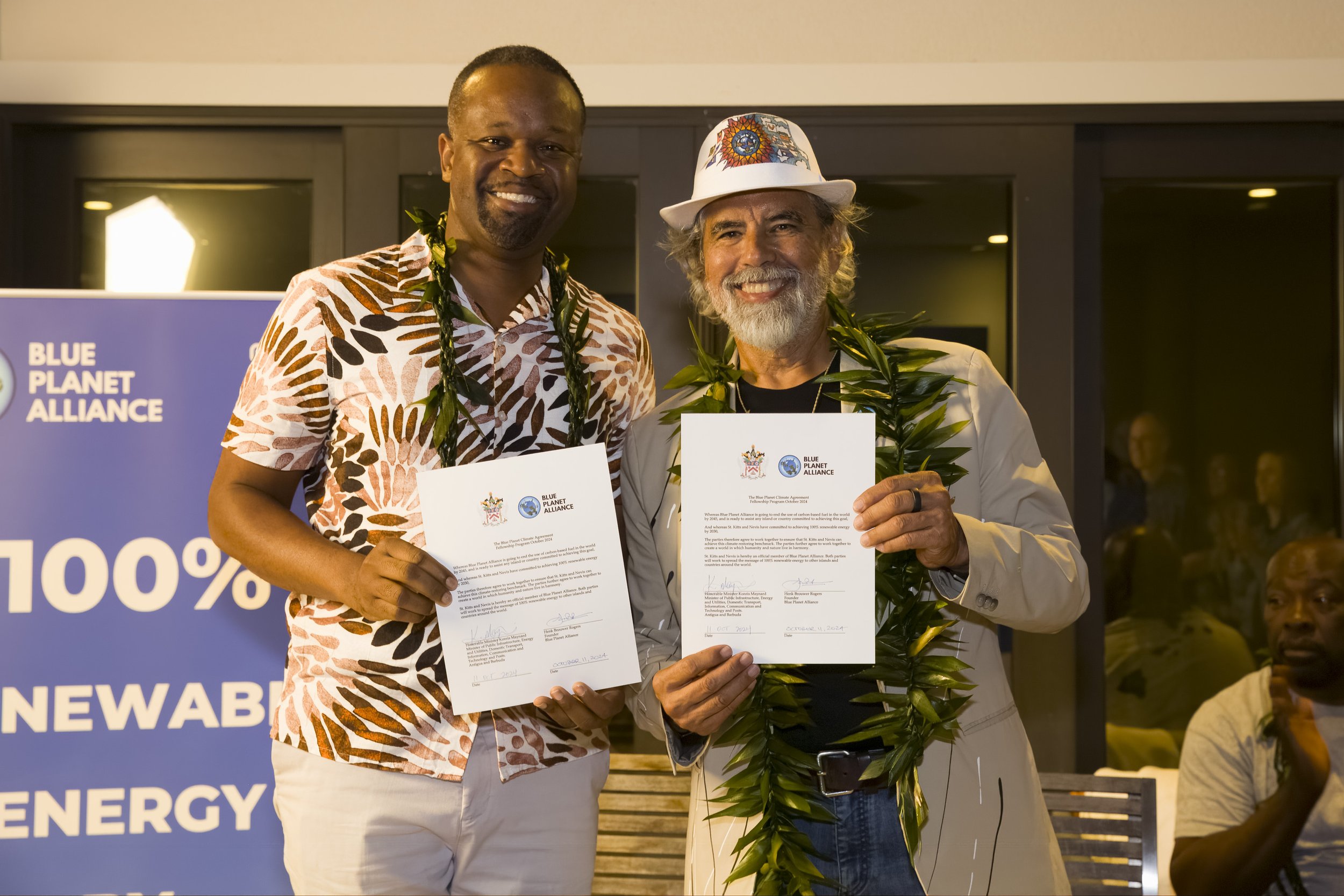
|
FEDERATION OF SAINT KITTS AND NEVIS October 2024 |

|

|
REPUBLIC OF THE MARSHALL ISLANDS April 2025 |

|
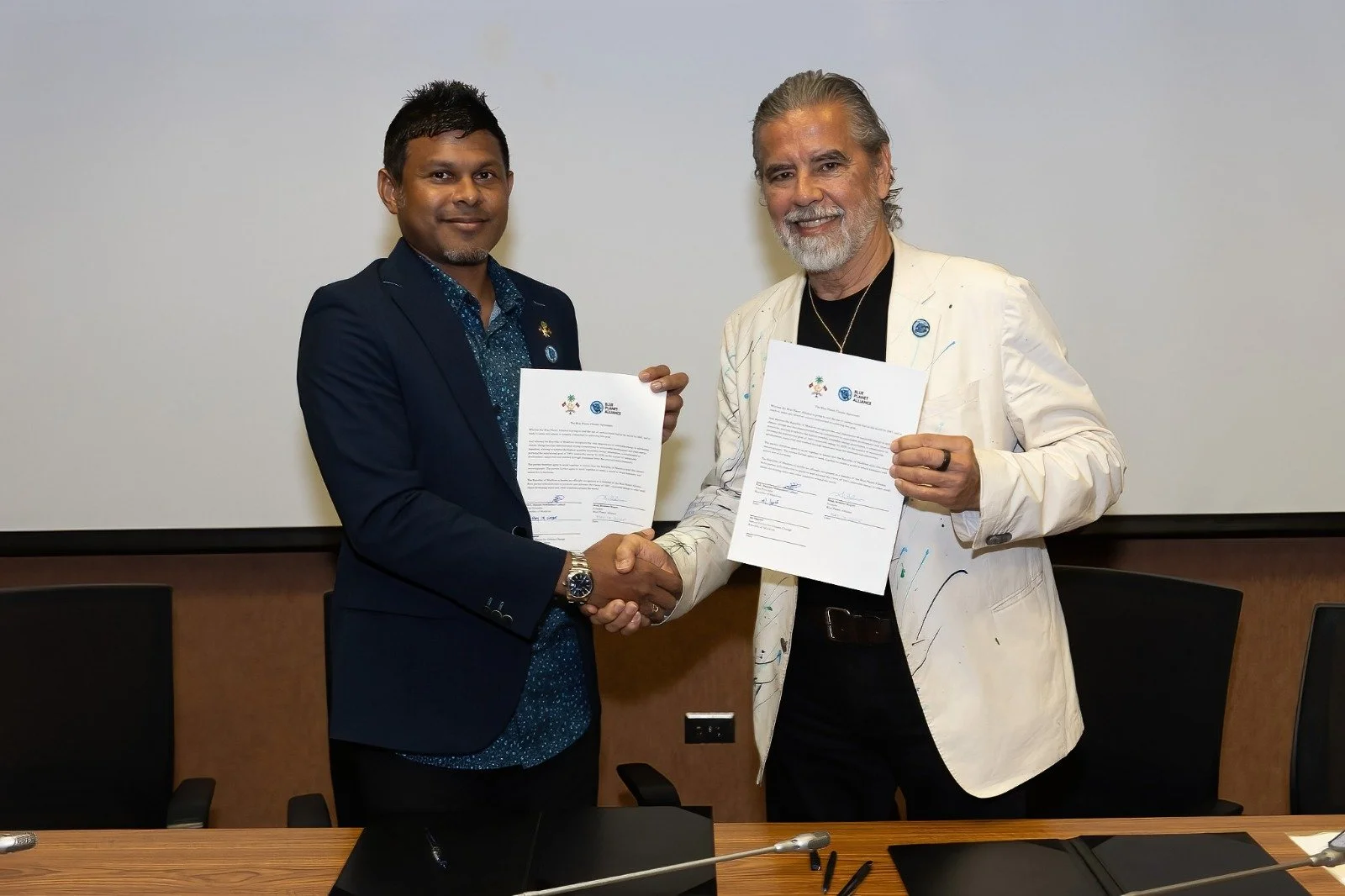
|
REPUBLIC OF MALDIVES May 2025 |

|
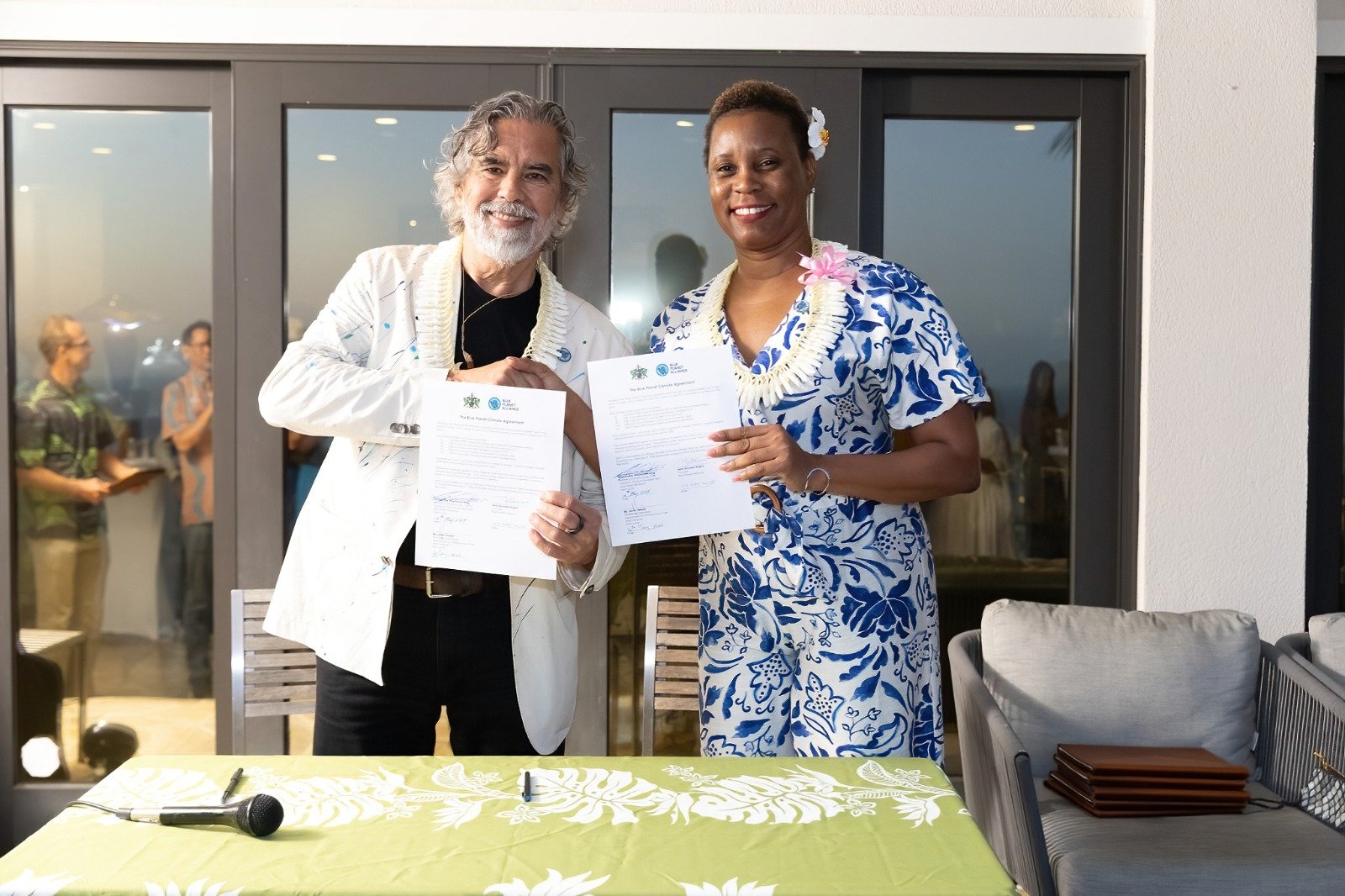
|
SAINT LUCIA May 2025 |

|
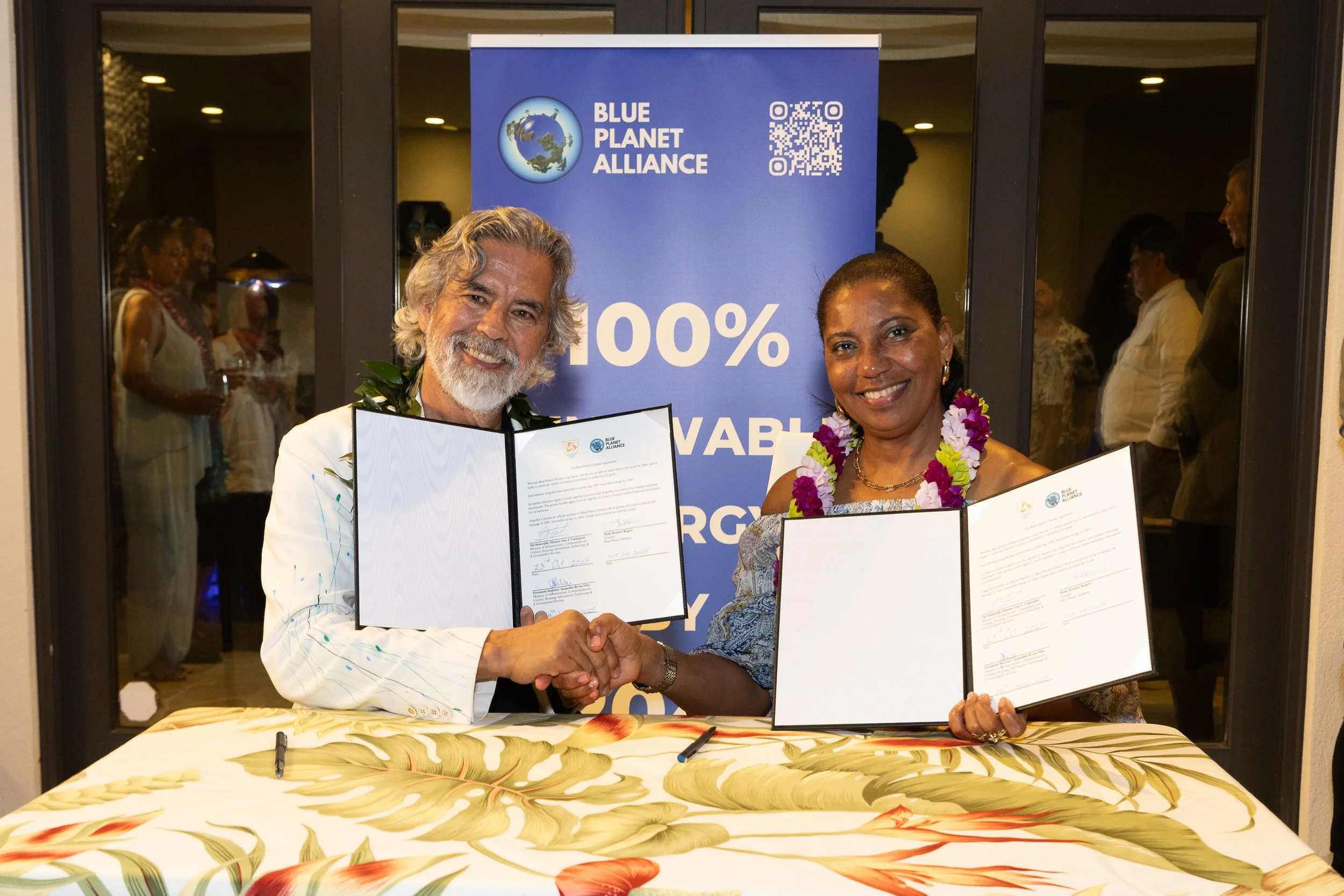
|
ANGUILLA October 2025 |

|
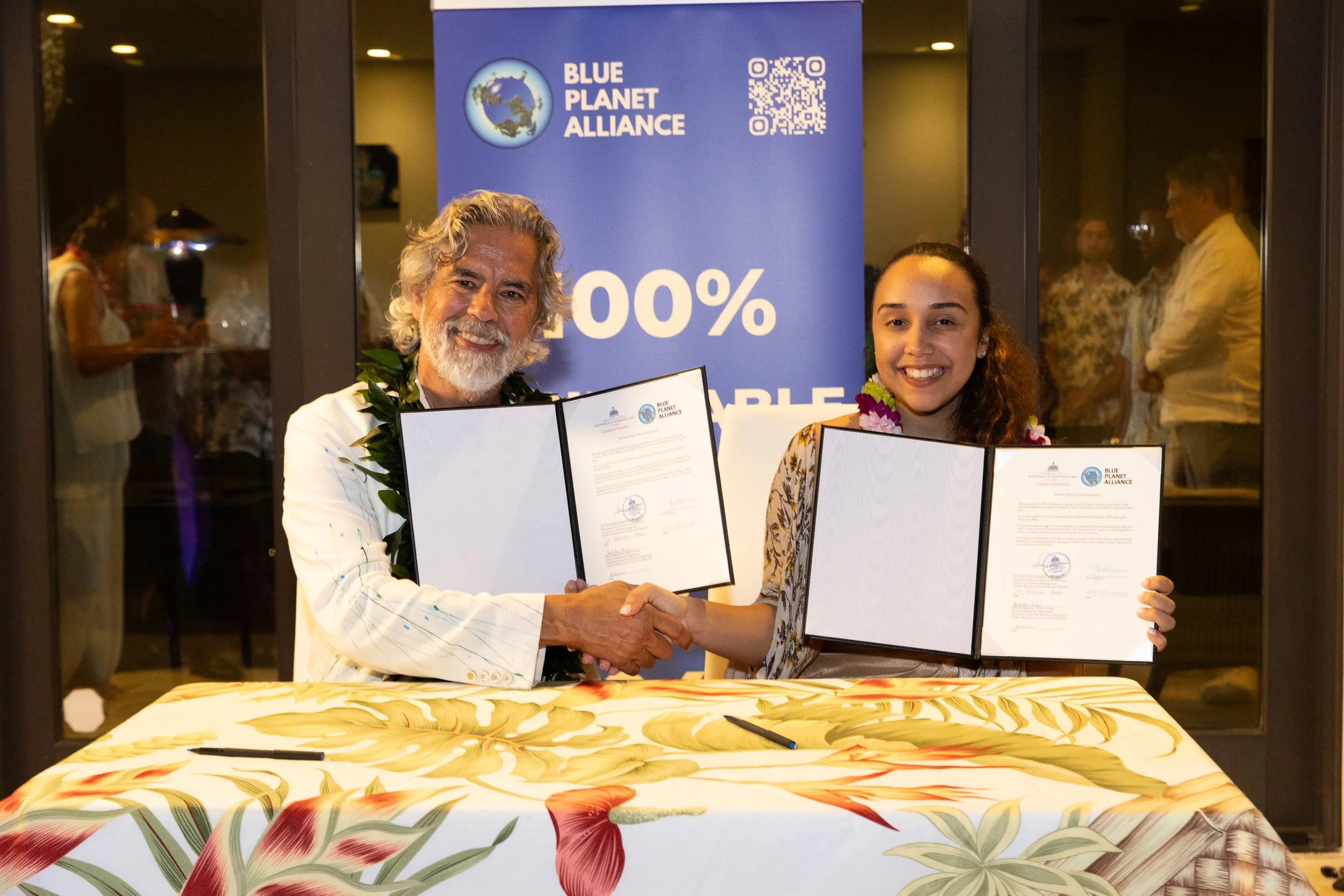
|
DOMINICAN REPUBLIC October 2025 |

|
